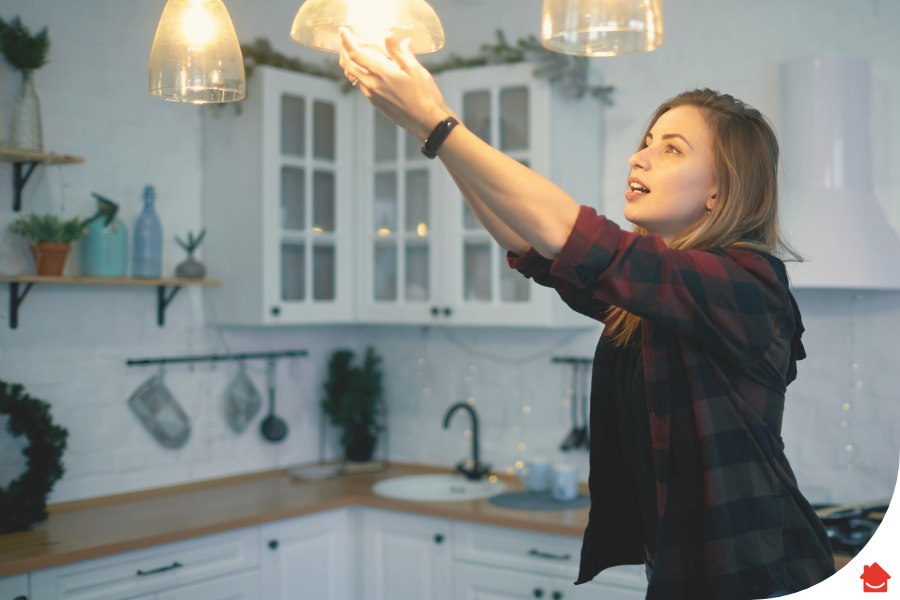This might come as a surprise, but the current English regulations on smoke alarms aren’t the same if you’re a homeowner, tenant or social landlord. If you’re a homeowner or private landlord, you’re required to follow the stringent regulation in place and have smoke alarms fitted on each storey of a residential premises. Alongside this, you’re required to add a carbon monoxide alarm whenever you install a fixed combustion appliance like a gas boiler.
However, these laws don’t yet extend to cover social housing – and social landlords are not legally required to provide such safety measures as yet.
Fortunately, this issue is one that is in the process of a consultation and is undergoing review. The law could very possibly change to cover all social housing in the next few years. However, if you’re a tenant living in social housing, right now your landlord isn’t legally required to put the recommended alarms in place to protect you. In the meantime, the responsibility to protect yourself from the dangerous and devastating effects of a fire or carbon monoxide poisoning legally falls to the tenant.
When will the regulations change?
The regulations in question are England’s 2015 Smoke and Carbon Monoxide Alarm Regulations, and the Ministry of Housing, Communities and Local Government (MHCLG) consultation, which ran from 17 November 2020 to 11 January 2021, has set out proposals to extend those regulations to social housing.
What’s the law on smoke and carbon monoxide alarms in Scotland?
In Scotland it’s going to be a legal requirement from 2022 that all homes, regardless of tenure, must follow a new fire and smoke alarm standard. In Scotland, this equates to one smoke alarm installed in the room most frequently used for general daytime living purposes, one smoke alarm in every circulation space on each storey, such as hallways and landings, and one heat alarm installed in every kitchen.
When will the law change in England?
England is likely to follow Scotland in introducing more stringent regulations across the board. However, the legal wheels must do some turning before then (any changes will be revealed following the MHCLG response to consultation on the proposal).
What will the new English regulations include?
The MHCLG proposal includes requirements for social landlords to ensure at least one smoke alarm is installed on each storey of the premises, on which there is a room used wholly or partly as living accommodation. Alongside this, private and social landlords could be asked to install a carbon monoxide alarm in any room used as living accommodation where a fixed combustion appliance is used (excluding gas cookers).
Are tenants responsible for keeping smoke and carbon monoxide alarms in good working order?
The terms of the current proposal suggest that, yes, it’s the tenant/occupant who should be responsible for the testing and battery replacement of the smoke and carbon monoxide alarms once fitted in social housing by the landlord under the proposed new regulations. At the moment, however, it’s still a social tenant/occupant’s responsibility to protect themselves from any dangerous effects of fire or carbon monoxide by installing their own smoke and carbon monoxide alarms.
The Heating and Hotwater Industry Council (HHIC), which represents the UK’s hot water and heating industry, has been carefully scrutinising the government’s proposed changes, has advocated for inclusion in the legislation that while landlords should legally arrange installation / replacement when required, and support their tenants with testing information, occupants should take some ownership of their own safety. With this in mind, it will be crucial that social landlords have the right support and information to provide to their tenants. This could be an information pamphlet, which is kept with other appliance safety documents in the home.
So is this proposed new legislation good news?
Overall, yes the proposals put forward in the consultation are a positive step to align smoke and carbon monoxide alarm rules across the private rental and social housing sector.
The HHIC has stated that while they think the proposals are strong, there are still further questions about whether guidance should be updated for alarms to not be installed alongside modern gas boiler installations. The reasoning behind this is that any major carbon monoxide incidents attributable to gas boilers in recent times are at near record lows. In fact, most major carbon monoxide incidents concerning gas boilers in the last 10-15 years have either concerned older open-flued appliances, or extended flue systems.
The HHIC is also asking for more consideration over gas cookers, which are currently excluded from the proposals. However, the HHIC is aware of many instances where poorly installed and maintained gas cooking appliances have given rise to carbon monoxide alarm activation. Often the gas cooker can be located in the same room as the boiler, which has caused initial suspicion over a potential carbon monoxide leak to sometimes fall incorrectly upon the boiler. The HHIC says this strengthens the case that carbon monoxide alarms should never be a replacement for regular servicing of all gas appliances, which should be done by a registered Gas Safe engineer.
What can I do to scrutinise safety on my property?
Whether you’re a homeowner, private landlord, social landlord or tenant, the proposed legislation clearly sets out a plan for increased safety measures and responsibility around smoke and carbon monoxide alarms. If it’s not strictly the law in England yet, it soon will be, so we recommend you get the following safety measures in place as soon as possible:
- Check that you have smoke alarms installed on every storey of the property and that they are in good working order
- Check that you have a carbon monoxide alarm installed in any room used as living accommodation where a fixed combustion appliance is used – and that it’s in good working order
With HomeServe, we’ve got you covered with our Landlord’s Heating, Plumbing and Electrics Plus with Service and Gas Safety Certificate.
Stay safe
Taking responsibility for your safety takes away worry. If you’re looking for increased peace of mind, get access to a nationwide network of Home Experts to take care of your repair needs.




